|
Last night, a real estate developer gave the nation his expert opinion... on medicine. During the GOP candidates' debate, Trump argued a link between autism and vaccines, despite the fact that medical studies have widely shown there is no proven link between the two. Experts call his claim "false," "dangerous," "damaging" and "repugnant."
I, too, am appalled. And I just can't stop asking myself, "Why is a real estate developer giving medical advice?"
Because I am not some paranoid conspiracy theorist, I listen to doctors over actors and racists. H/t We Love GMOs and Vaccines
But is Donald Trump so very different from your everyday layperson, who leverages emotions and anecdotes to argue with science? Probably not. Due to several factors, such as the ease of creating your own echo chamber online; overrepresentation of extreme views in political groups, interest groups and the media (after all, if you don't have an extreme opinion about something, are you really going to vote, donate or start a Facebook page on that issue?); the rise of victimhood culture; and, possibly, a flat-out rejection of scientific thinking.
For example. Last week, I was banned from commenting on Everyday Feminism's Facebook posts, because I disagreed them. To quote Everyday Feminism is a Joke, And No One Should Ever Read It,
I was not trying to sell their readers Viagra or Louboutins. I wasn't trying to teach anyone how they can make $1,000 per week working from home! I wasn't being mean or calling anyone names. All I said is that maybe, JUST MAYBE, the reason a doctor didn't diagnose an overweight 19-year-old with lung cancer... was because it's exceedingly rare for teenagers to get lung cancer. And not because he was "medical fat shaming."
This turned into a larger discussion about the dangers of victimhood culture and censorship. It is irresponsible and cowardly to block people from participating in a public discussion (which, by definition, is sort of what "social media" is), just because they presented a different viewpoint and/or data to support their claim.
I used Nassim Nicholas Taleb, a so-called "scholar" as an example of someone who pushes an anti-GMO agenda... and actively encourages his readers to block, dehumanize and ignore people who support GMOs.
Apparently Taleb is as fond of calling people "retards" as he is of citing discredited and debunked GMO studies. Guess he missed out on the whole #endtheRword thing...
Which somehow devolved into a weird Facebook, um, "discussion." Basically, my boyfriend -- a Stanford geneticist -- shared my blog post, because he agreed with me. As a REAL scientist, he is passionate about promoting scientific literacy and combating anti-science views. And he tagged a few public Facebook pages that have banned him from commenting on their social media -- because he disagreed with them. His exact words were:
This article by Eva at The Happy Talent is about a problem she and I have both been having with groups on social media attempting to silence reasonable discussion on topics they do not agree with. For her it was with Everyday Feminism and for me it's been with a variety of anti-GMO individuals or groups such as Nassim Nicholas Taleb, Gateway Garlic Urban Farm, and others who would rather silence those who show evidence contrary to their beliefs rather than have a reasonable discussion of the evidence. This is not a problem just for Eva and me. People like SciBabe and We Love GMOs and Vaccines , and Kevin M. Folta are often blocked from discussions even though they try to do so in a respectful manner just showing scientific evidence that contradicts the groups pet beliefs. I see this as a major problem for us as a society. It's bad enough that google searches and facebook feeds are already biased towards stuff we agree with, but when people who are experts in an area try to discuss something with you, even if you disagree, your response shouldn't be just to block and silence them.
So then these urban garlic farmers were all:
As someone who's trying to prove a point, I couldn't be more pleased with their response. Look at that language!
"Assault." "Refuge." "Angry." It is a classic example of victimhood culture. "You disagreed with our public Facebook posts -- that means you are angry, and you assaulted us, and we need refuge from you." Because, you know. No one should EVER have to read about a viewpoint that disagrees with their own. ESPECIALLY when you back that viewpoint up with science. (But more on that later.) So then, Justin, Ph.D. Candidate in Genetics, tries to begin a dialogue. He shares some studies and articles. Without presenting any counter evidence, the garlic farmers accuse Justin of being "pro-corporate science." And they say some other weird jargon (not citations or numbers, just compound neologisms I wasn't familiar with). Justin proceeds to post a TED talk about finding common ground between organic farmers and GM technology.
Which leads to more accusations of "being attacked." (Be careful when you equate the search for common ground with an attack.)
The point is. Sometimes, as a scientist, it's really hard to discuss science with laypeople. They read one article on the internet or Like one Facebook meme... and think they're an expert on something. They read one personal narrative... and generalize it to an entire population. And if you try to argue with them -- you know, by talking about studies and statistics and research -- they get all upset and claim you're attacking them. And if you happen to mention something like, "I'm a scientist," or, "I spent seven years studying this," they accuse you of being arrogant. Don't get me wrong. I love hearing new perspectives and learning from experts in all fields, and I am willing to discuss anything with anyone who is willing to learn. I think everyone who has done their research (by reading science, not political propaganda) is entitled to an opinion. But the problem with people like Trump, Taleb and so many others... is that they outright reject the scientific way of thinking. This is probably partly due to the rise of victimhood culture, described beautifully by Greg Lukianoff and Jonathan Haidt in their recent Atlantic piece, The Coddling of the American Mind. The press has typically described these developments as a resurgence of political correctness. That [80s] movement sought to restrict speech (specifically hate speech aimed at marginalized groups), but it also challenged the literary, philosophical, and historical canon, seeking to widen it by including more-diverse perspectives. The current movement is largely about emotional well-being. More than the last, it presumes an extraordinary fragility of the collegiate psyche, and therefore elevates the goal of protecting students from psychological harm. The ultimate aim, it seems, is to turn campuses into “safe spaces” where young adults are shielded from words and ideas that make some uncomfortable. And more than the last, this movement seeks to punish anyone who interferes with that aim, even accidentally. You might call this impulse vindictive protectiveness. It is creating a culture in which everyone must think twice before speaking up, lest they face charges of insensitivity, aggression, or worse.
Yes, Everyday Feminism isn't a university. But I think they still have a responsibility to their readers. If someone is making hateful comments or threatening other users -- ban them! Report them to the police! But if they simply make a point and you feel the need to delete it... That says more about the quality of your article or Facebook post than it does about the person making the comment.
Another thing that sucks about debating a layperson: they just say stuff. That may or not make sense. And they think they're right, because emotion! Because intuition! Because outlier! Because single anecdotal piece of evidence!
For example, I recently wrote Dear Felicia Czochanski: You're Gorgeous, But You Don't Understand Street Harassment. Which basically says, Felicia, it seems like the whole world is mad at you. But not because of your ideas. They're mad because you said you're pretty, and a certain subset of beta males HATE when women think they're pretty. (It's quite similar to catcallers actually -- harassers like to prey on the weak, and women with confidence aren't weak.) So then some guy on Twitter proves me wrong... by saying: 1. Felicia is a "6." Therefore, she "can't get away with" identifying as pretty.
2. Kanye West. Because Kanye West is a citation.
3. Sarah Jessica Parker.
I started to tell him about all the experimental studies that found that, while some beauty is cultural and/or subjective... a lot of it is pretty objective, universal and quantifiable. Not to mention the various social and qualitative measures I've come across in the course of, you know... Getting a master's in psychology. Conducting psychology research. Reading countless books and studies on the gender psychology (I got my first A+ in Gender Psychology) and the psychology of physical attraction.
But then I realized something.
Not my quote, by the way. I heard it from my friend Ken, who heard it from his dad, who attributed it to Mark Twain. I don't know who actually said it, but I kind of agree.
Unless I know the person, I'm probably not going to want to take the time to explain all the background knowledge I have on a topic I know a lot about. I may not want to take the time to explain confirmation vs. representation biases or the scientific method or the difference between a hypothesis and a theory. And unless they embrace a scientific way of thinking, it's not going to matter, anyway. Cue my total major click-bait title: You Say "Arrogant," I Say "Right." Yes, scientists often come across as arrogant. And, sometimes, they are. Sometimes, non-scientists are arrogant, too. Sometimes, people are arrogant. Other times... they're just right. They've spent a lot of time studying things you haven't. A new survey by the Pew Research Center shows that, while most Americans understand the most basic of science knowledge (e.g., that uranium is needed to make nuclear energy), most also struggle with slightly more advanced concepts (e.g., the difference between wave length and amplitude). (You can take the quiz yourself here.) Another Pew survey found that the public doesn't understand what's going on in the scientific community. They think human-caused climate change is some kind of "debate." The truth is, according to a meta-analysis by Cook and colleagues (2013),
Oreskes (2004) did a survey of all peer-reviewed abstracts on the subject "global climate change" published between 1993 and 2003, and found that not a single one rejected the consensus position that humans are causing global warming. And yet, according to a different Pew survey, 37% of Americans think scientists disagree on this issue.
So I guess it's easy to see why a scientist might come across as arrogant. She gets her information from peer-reviewed journals. You get yours... from TV and Facebook. Therefore, she might feel like her sources are superior to yours. (Because they are.) John Oliver has an excellent little segment on this:
Of course, I don't know whether scientists are actually more arrogant than laypeople. But I do know that you don't have be a scientist to think scientifically. Like mindfulness and charisma, scientific thinking can be learned. Start by practicing the following habits:
1. Accept reality, even if you don't like it or would like to change it. 2. Observe and check "facts" in the world around you. Are they still true? Have they changed? Was your original observation not supported by the data? (This is known as the empirical method of science.) 3. Discuss facts, theories and hypotheses in a logical and consistent way. Embrace logic. Avoid contradictions. 4. Avoid false or unrealistic facts. Scientists are skeptical thinkers. They question what they learn, asking questions like, "Why? How? Could that result be reproduced?" 5. Be flexible in your thinking. Be willing to revise your opinion if you find new information. Remember: skeptical thinkers avoid ideas that are absolutely, unconditionally true. 6. Be willing to admit when you were wrong. I've missed the mark before, and I'm sure I'll do it again. Next, educate yourself. Buy some books. Download some podcasts. Read some articles. Remember to approach them using the framework described above. And stay skeptical. Who wrote the article you're reading? A geneticist? A farmer? A mommy blogger? The Onion? Before you go any further, you'd better find out -- or you're going to end up like Jack Warner, former vice president of FIFA, who recently quoted an Onion headline: FIFA Frantically Announces 2015 Summer World Cup In United States.
Next, ask yourself (as mentioned above), Why? How? When? Could that result be reproduced?
And, when you're ready to have a discussion, stay mindful. Are you making valid arguments based on research? Or are you: 1) Attacking the person, not their ideas.
Dehumanization. You know, that's a tactic the Nazis used, too.
Yes, the reason I'm pro-GMO is because I don't smoke enough drugs and I need to get laid. I'm also "narcissistic, overbearing and self righteous" because I responded to a comment Martin York left me on my Facebook page. Oh, and an anonymous stranger on a secret site is saying mean things about me. #GetReal #StickToTheFacts
2) Relying on emotions and anecdotes to "prove" your point.
3) Harping on irrelevant asides that don't even matter.
In a discussion about GMOs, why does everyone keep talking about "right wing creationists who denied climate change?" I'm so confused!
4) Talking about conspiracies.
Call me crazy. But when people start talkin' conspiracy theories, they sort of lose me. And it kind of makes me worry about their well-being. It's indicative of pathological thinking patterns, to say the least. Also, I find it hard to believe that the dozens sincere, kind-hearted scientists I've gotten to know over the last few years... are actually cold-blooded baby killers who are working for "big pharma" and "corporate science." Though, I will admit, I do find the idea of some of my best friends hovering around secret plans in a dark conspiracy lair to be quite hilarious. Even if you're not talking about some big government theory... Consider this guy. He was all, AH HA! I discovered that SOMEONE WHO SHARED YOUR BLOG POST IS YOUR BOYFRIEND! THIS WAS ALL CO-DIRECTED BUT I CAUGHT YOU! BWAHAHAHAHAH!
5) Making threats. Never acceptable. I haven't received any serious threats on the internet before. But there's a huge problem online, especially for women, with death threats, rape threats, and more. Laws need to be made to protect victims of these threats, and tech companies need to seriously reconsider their stance for such threats. There's a huge difference between censorship of ideas and banning hate speech.
***
See? Anyone can think scientifically. You just have to commit to it! And believe me -- if you think and debate following these principles, people are going to take you a lot more seriously. Scientists, debaters, and intelligent others: anything I missed in this post? Let me know in the comments!
5 Comments
Excellent write-up. I read Black Swan and loved it just a few months ago. I'd never heard of Taleb before this. Then I became aware about how low Taleb and go. His anti-GMO attacks are disgusting. And the whole situation with Kevin Folta makes me want to vomit.
Reply
7/31/2016 12:51:32 pm
>For example, I recently wrote Dear Felicia Czochanski: You're Gorgeous, But You Don't Understand Street Harassment. Which basically says, Felicia, it seems like the whole world is mad at you. But not because of your ideas. They're mad because you said you're pretty, and a certain subset of beta males HATE when women think they're pretty. (It's quite similar to catcallers actually -- harassers like to prey on the weak, and women with confidence aren't weak.)
Reply
7/31/2016 05:24:26 pm
"Certain subset of beta males" is a phrase I borrowed from a psychology paper I read about traumatic insemination in fruit flies. Basically, it meant a group of males none of the females wanted to mate with, who used a set of appendages to force female flies to mate with them. None of the other males used these appendages.
Reply
Not-required
7/31/2016 06:13:44 pm
Tends to get thrown around a lot by pua/RP/RPwives/alt right types as a slur.
Kevin Gates
3/28/2017 09:51:45 am
avoid ideas that are absolutely, unconditionally true.
Reply
Leave a Reply. |
About the Author

Eva is a content specialist with a passion for play, travel... and a little bit of girl power. Read more >
Want to support The Happy Talent? CLICK HERE!
Or Find me on Patreon!
What's Popular on The Happy Talent:
Trending in Dating and Relationships:
What's Popular in Science: Playfulness and Leisure Skills:
Popular in Psychology and Social Skills:
Categories
All
|
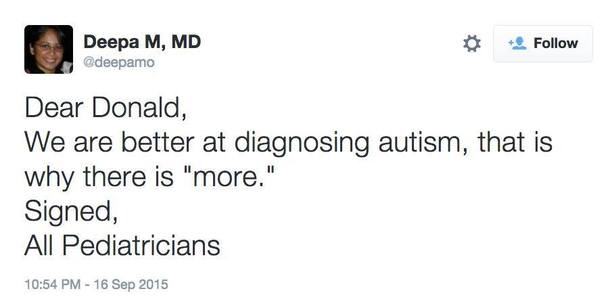
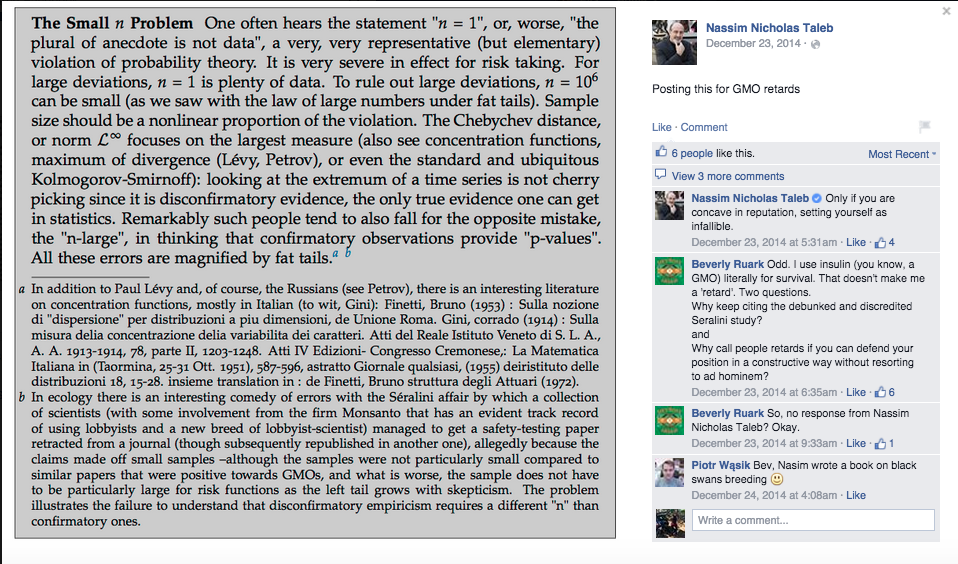
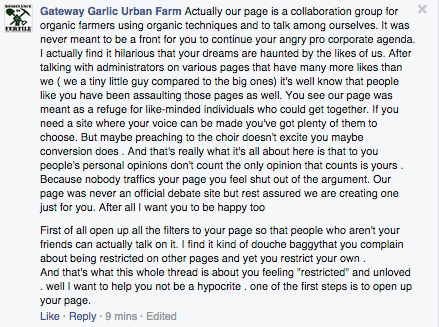
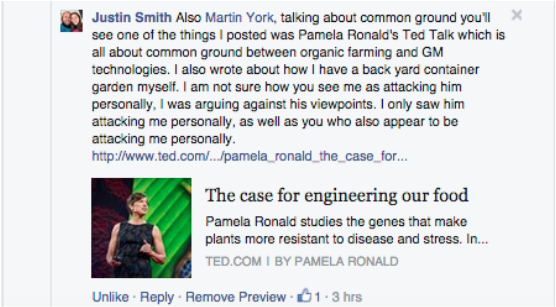
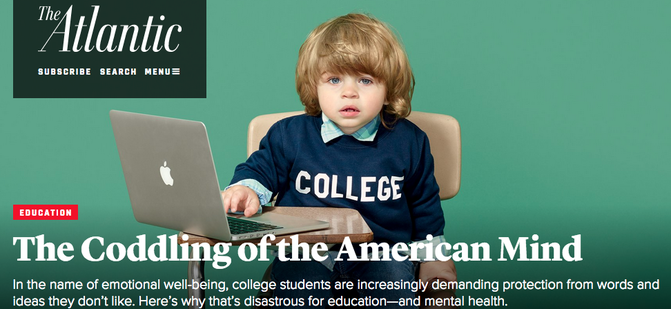
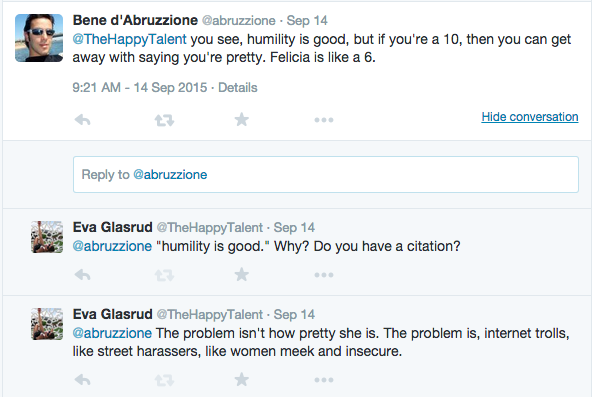



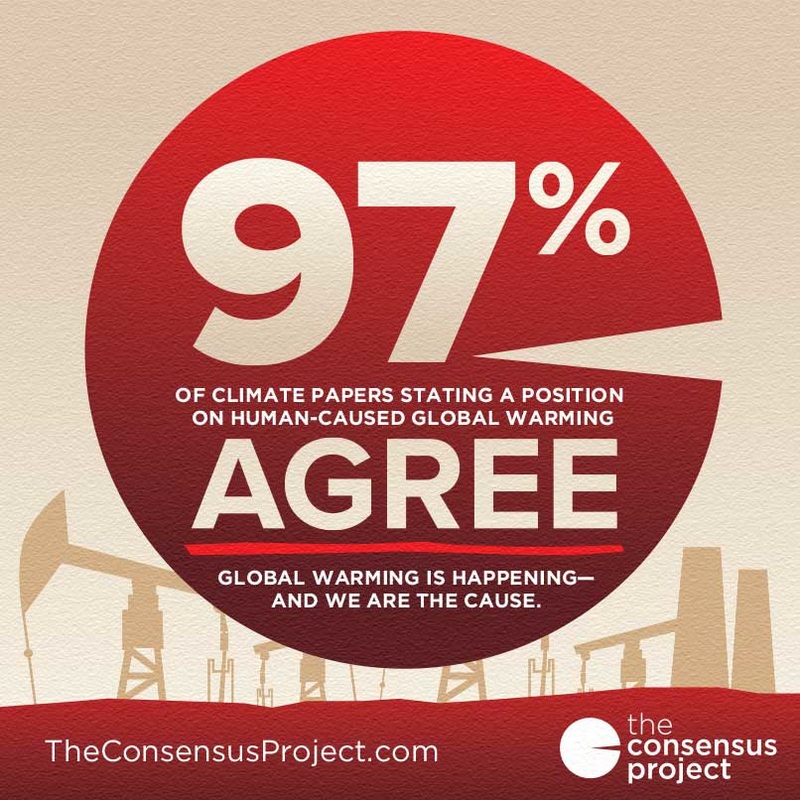
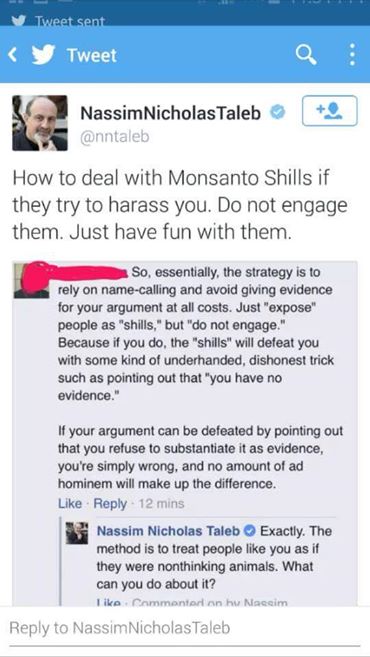
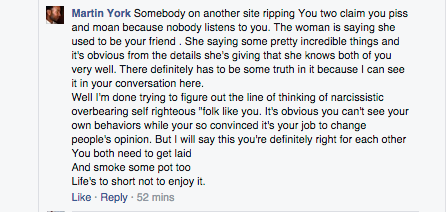
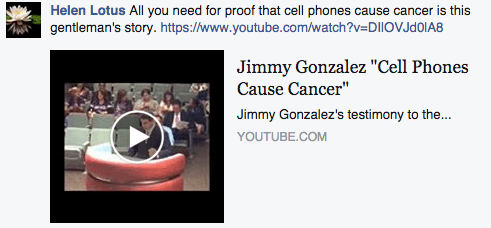
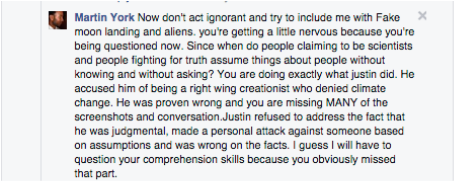
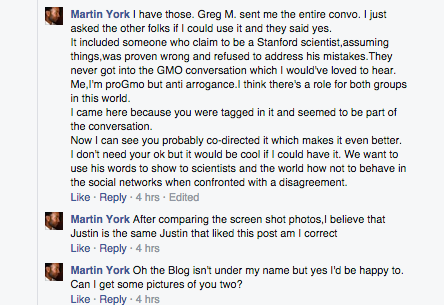

























 RSS Feed
RSS Feed